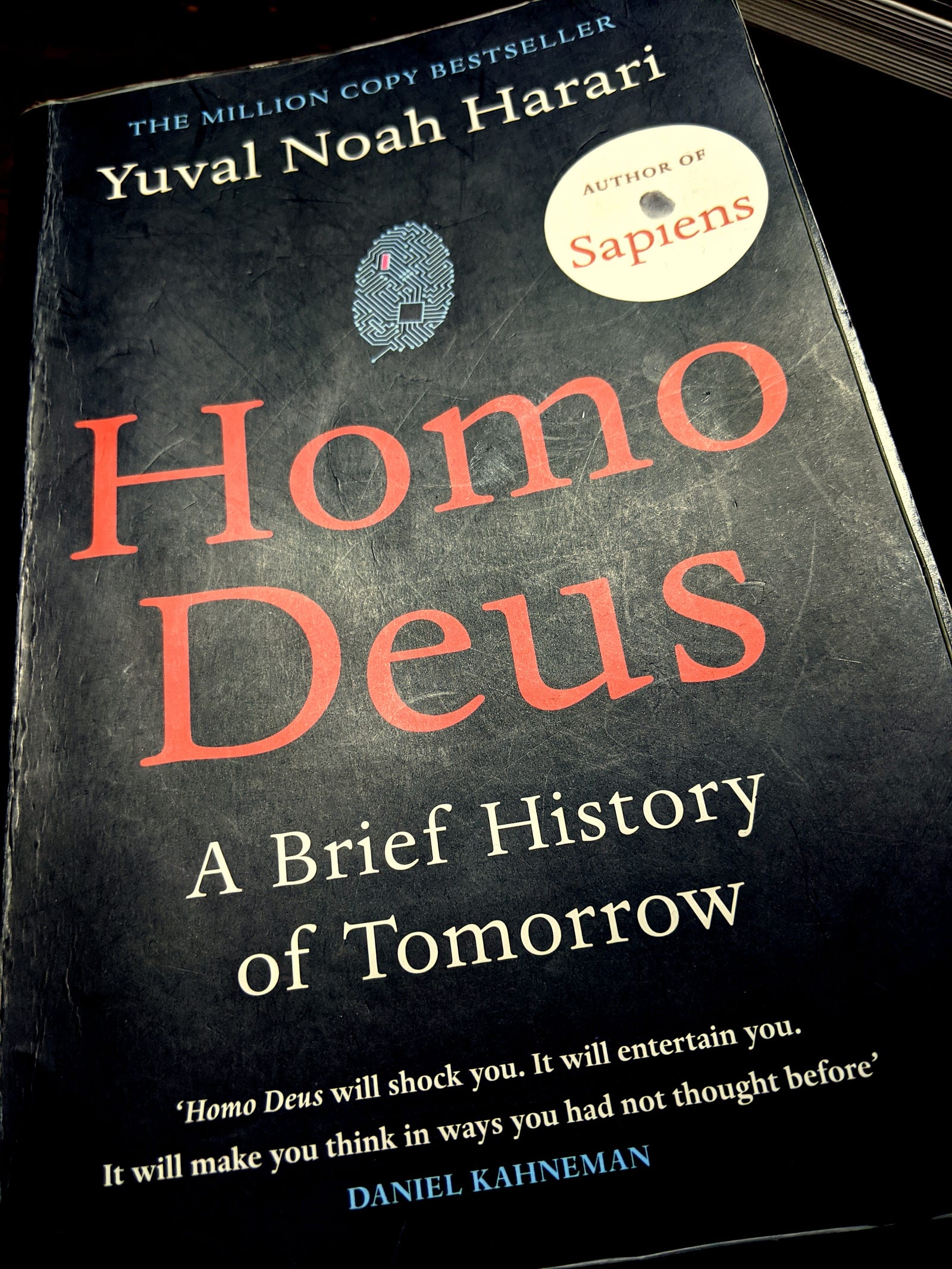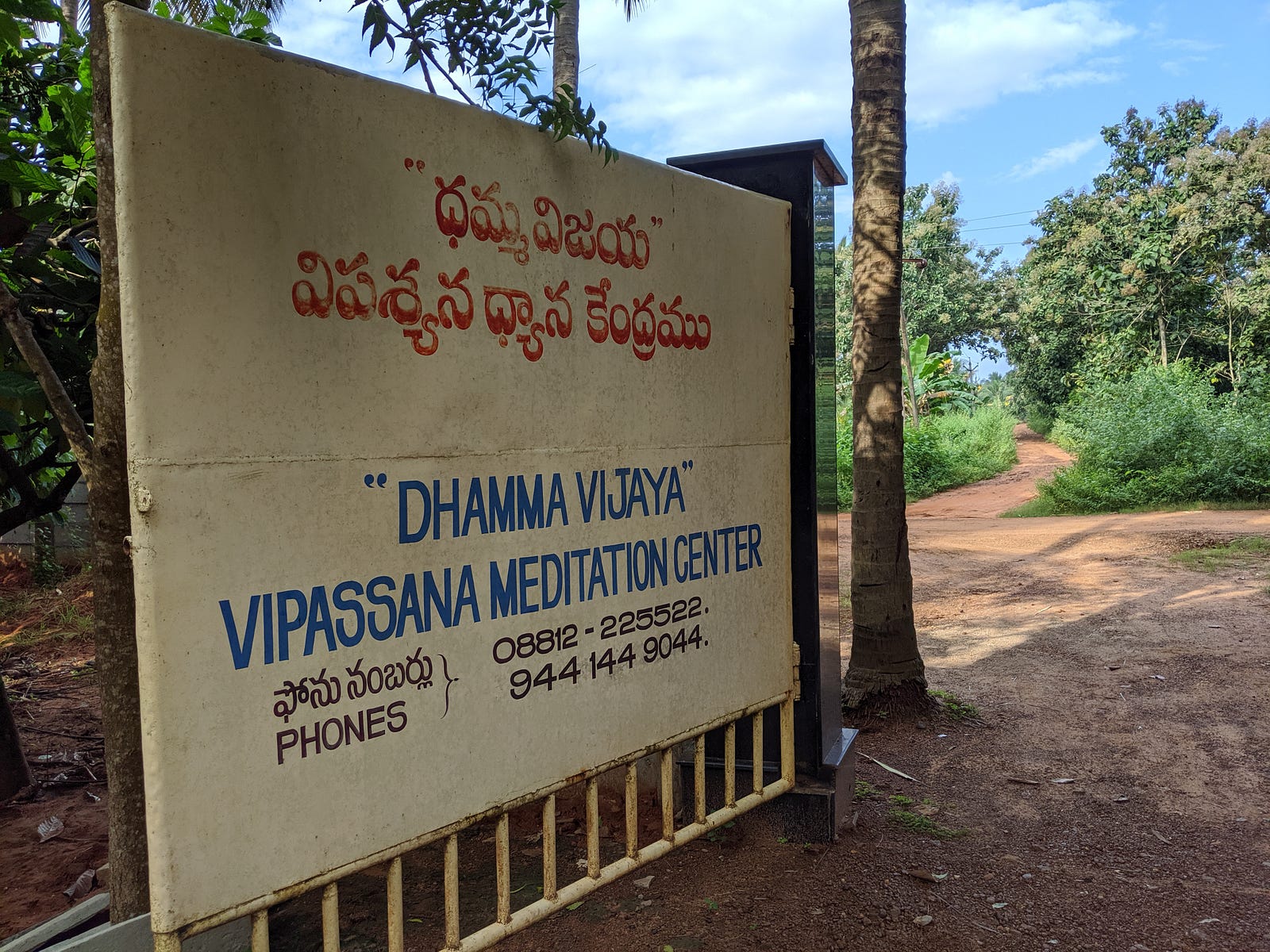The last things first. For those of you who know that Vipassana meditation course has got something to do with observing ‘noble silence’ (basically, keeping quiet) for ten days straight — do not panic. At the end of the program your voice box and your capacity to generate sounds will still be in tact. For those who do not know anything about Vipassana — the next five minutes will deliver you quick enlightenment.
Vipassana is supposedly an old Indian meditation technique that was rediscovered and spread by Gautama, the Buddha, some 25 centuries ago; and more recently popularised by the superstar author Yuval Noah Harari. I had heard the term in the early years of the third millennium, in the year 2005. A friend of mine had completed a program around that time. I remembered only the very basic rule that you were not supposed to talk during the 10-day program. By the way, a 60-day course is also on the offer.

But not speaking was the smallest of the problems I had to tackle during my course last month. In the evening of the Day-1 of the course, you had to deposit all your cellphones at the office. In the initial few minutes without the mobile you really feel like, yes, as if you have lost a little but vital part of your body. But soon you get used to it, though occasionally your old habit kicks in and you even start searching the room for your mobile. (Then you smile.)
In fact, I did not really miss talking as much as I missed the mere holding of my mobile. The cool feel of the glass back…
A typical day unfolds with a wake up call at 4 AM and ends by 9:30 PM. An earth-shattering alteration of the sleep cycle for most of us. Till then I had seen many 4 AMs in my life, but — not by waking up but by simply staying awake. Also have a look at the meal times. It has a better potential to drive you mad. Breakfast at 6:30 AM, lunch from 11:30–12 Noon, and the last things to munch (snacks and tea time) by 5:30 PM. And that is not all. You will notice there is no slot for dinner. That is because you don’t get dinner.
The crazy food-sleep cycle was also not a serious problem for me. And the other rules like no alcohol, no lies, no sexual activities, no non-veg, no smoking, etc. are incidental to ‘noble silence’ and the revamped food-sleep routine. Most of us are good at adapting to situations; and playing the roles we are handed out (Stanford prison experiment, anyone?) Also my illustrious (yes!) academic and professional exposure has made it very easy for me to follow any schedule that an ‘authority’ hands out. I have been a MBA student, management trainee, officer trainee, and above all an obedient kid during my school days.
Every day you end up meditating for some 10-11 hours. In short, the entire day (minus the time for eating, sleeping and resting) is for meditation.
Inside the meditation hall, the instructions from the teacher seem so easy. But the whole game is about following them. For me the most difficult (and amusing) task in the entire program was to fix the mind (and the body) at a place. The meditation opens your eyes too to the very basic question: ‘Who am I?’ Are you the mind? Are you the body? Are you someone/something that tries to control the body and the mind?
I am reminded of the Tamil verses of lyricist Vairamuthu: Udala? uyira? peyara nee? … Moondrum illai seyale nee! Rough English version: Who are you? Are you the body, the soul or the person(name)? None of these. You are your action.
But wait, wait! The defining feature of Vipassana is that the program is not an intellectual entertainment or a spiritual quest. It is neither a philosophical introspection (whatever it means) or a series of motivational sermons. In fact the program is far removed from any of these. The only ‘talking’ that happens daily is the video-taped one hour lecture of Mr.S.N.Goenka (1924–2013), the founder of the organisation.
The program is strictly a boot camp for the mind. You have to work hard, really hard.
Another important aspect of Vipassana program is that the meditation campus is stripped off religious motifs like idols, flags, miracles, candles, etc. Can you believe, there are no framed pictures of even swamijis!

The course is open to people of all religions (there were two Christian nuns in my batch), all races, and also to those who do not believe in the birth-death cycle. But the technique of Vipassana is drawn from the teachings of the Buddha. Therefore little and nice Buddhist stories find themselves ensconced in the daily discourse. These stories make you look forward to the talk at the end of a heavy day. There is also this daily dose of loud speaker chants in Pali language. Also, all the meditation sessions end with Pali shlokas. But such things are surely not enough to brand the program as chants-intensive.
Overall, the course is as secular as rain. Or the sun.
I just met a friend who has paid close to Rs.3,000/- for a three-day meditation camp run by a swamiji. And that just reminds me of this — the entire ten-day Vipassana course does not involve any kind of charges or fares for boarding. The application happens online, and right from then till the last day you are not required to pay anything. This again was based on a Buddhist concept, we were told. After the end of the course you could donate as much as you can, but only if you wished. I’ve always known spiritual sessions and cult gurus as an unfailing path to make some quick money and fan following. So to me this zero-fees policy was something just incredible, awesome.
Actually, everything is free. There are no hidden costs.
This is the golden jubilee year (1969–2019) of Vipassana teaching in India by Mr.S.N.Goenka. The first and the largest centre of Vipassana is in Igatpuri, Maharastra. The organisation (dhamma.org) has presence all over the world, and more than that they have a very simple and functional website.

2 comments:
Very well presented. Your breath is as secular as rain and shine, so is Vipassana . The entire course is very enjoyable. It is picking up. In Tamilnadu there are centres at Chennai, Thiruvannamalai and Dindugul..
Thanks a lot sir!!
Post a Comment